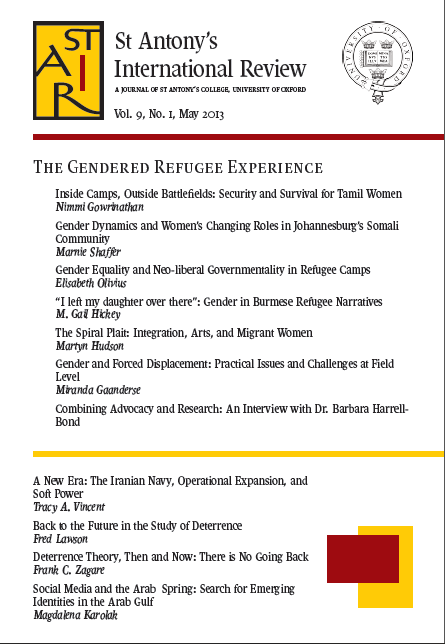
Launch of current issue of the St. Antony’s International Review (STAIR): “The Gendered Refugee Experience”
‘I do not believe that gender equals women—a fact that has been neglected,’ says Dr. Barbara Harrell Bond, in an interview found in the newest publication of the St Antony’s International Review (STAIR), entitled “The Gendered Refugee Experience”. Set to launch on 23 May at 17:00 in Queen Elizabeth House the issue addresses gender as a dimension in claims for asylum and, more centrally, as a central component in post-flight experiences
Launch of current issue of the St. Antony’s International Review (STAIR): “Power, the State and the Social Media Network”
The St Antony’s International Review (STAIR) is proud to announce the publication of its 16th issue, “Power, the State, and the Social Media Network”. The issue is available on IngentaConnect. The launch event will take place on 6 March at 6.30 pm in the Oxford Department for Politics and International Relations. In the themed section of this edition of STAIR five authors seek to shed light upon the contemporary relationship between power, the state and social media, perhaps the most pronounced and widely disseminated digital social technology the world has encountered. Supporting and affecting political movements from New York’s Zuccotti Park and Egypt’s Tahrir Square, “Facebook revolutions” and “Twitter revolutions” are conceived of as borne out of social media networks; they oscillate between the Charybdis of an anarchic freedom and the Scylla of surveilled repression, utilized by both citizens and the state. With such power, social media now holds the potential to empower and propagandize, secure and surveil, to create, and to destroy.









